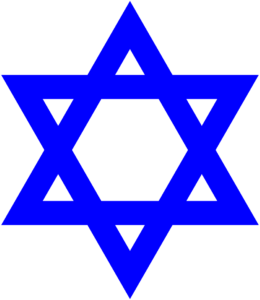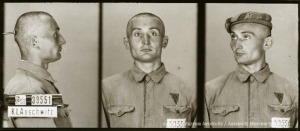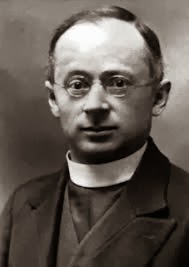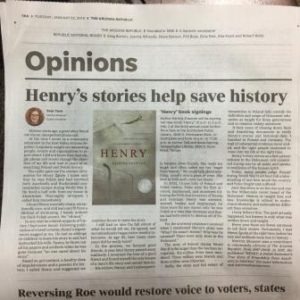I firmly believe that Holocaust Remembrance is critical and needs to include the “Other” victims. January 27 was International Holocaust Remembrance Day, a solemn remembrance of the systematic murder of six million European Jews during World War II by Nazis. I stand by the need to remember, honor and teach about the genocide that was the Holocaust. More and more millenials haven’t even heard of the Holocaust. While it certainly is not the only history many people are unaware of (some schools don’t even teach about 9/11), for me it is critical. Yet, there were millions of other victims I passionately hope can someday also be included in Holocaust remembrance and education. #IRemember #WeRemember
Why teach the Holocaust? Sadly, anti-Semitism is still rearing its ugly head all over Europe and the United States.
 We remember because a death count of any number represents human souls, sons and daughters, mothers and fathers, extended family and entire villages. We remember because each of them had a story and a life ahead of them unfairly cut short. And we remember because in the Holocaust victims were chosen for one reason only – they were Jewish OR had Jewish blood and heritage. There has been no greater or deadlier campaign of anti-Semitism in history.
We remember because a death count of any number represents human souls, sons and daughters, mothers and fathers, extended family and entire villages. We remember because each of them had a story and a life ahead of them unfairly cut short. And we remember because in the Holocaust victims were chosen for one reason only – they were Jewish OR had Jewish blood and heritage. There has been no greater or deadlier campaign of anti-Semitism in history.
The following statement comes from a new survey on anti-Semism by the European Commission. (Click here to read in full.) “The results of the survey show that there is a perception gap on Antisemitism: while 89% of Jews say that Antisemitism has significantly increased over the past 5 years, only 36% of the general public consider it has increased.” In the United States, it has been only three months since the deadliest assault on Jews in US history: the shooting in a Pittsburgh synagogue.
Holocaust education is essential, and is simultaneously essentially flawed and incomplete
Life is complicated. Even with my strong stance against any form of anti-Semitism, I have become someone who thinks that most Holocaust education is seriously flawed because it ONLY tells the story of six million Jews under Nazis. Even one Holocaust museum that I visited in a neighboring state omitted any mention of the true death count or extent of the Nazi death machine, and the devastation and wartime murder wrought against millions of other people. The museum failed to even mention Poles, except as collaborators and murderers. They mislabeled the camp uniform of a political prisoner that had a red triangle with a “P”, the symbol assigned to Polish political prisoners, as Jewish. Trust me – I deeply felt the shocking bias and omission.
“If you were there, where is your tattoo to prove it?”
 One reason I became passionate, and remain passionate about telling Henry’s story, and that I have never confessed publicly, is that repeatedly in his lifetime, some people did not believe him. He was dismissed because he had no tattoo on his arm to “prove it.” I never forgot it.
One reason I became passionate, and remain passionate about telling Henry’s story, and that I have never confessed publicly, is that repeatedly in his lifetime, some people did not believe him. He was dismissed because he had no tattoo on his arm to “prove it.” I never forgot it.
I asked him once if he ever sought out a group of survivors. He said yes. Once. And in one of the few bitter conversations we had he explained what happened. There, someone told him to his face that “you did not suffer as we did” and he flat out was not welcomed. If you know Henry’s story, imagine the incredible affront that was, even as he bore witness and had worked in a crematorium. I have heard from so many Polish friends that they too have been recipients of the same ignorance, attitudes and comments. Consider that I have even had a few people make the identical comments to me at a presentation “because everyone knows how anti-Semitic Poland was and is.”
I fully acknowledge that anti-Semitism in Poland was real, serious, and in some much-publicized instances did lead to some hideous and inexcusable acts. Yet, how is it justified to claim those acts and attitudes represent “all” Poles or assume many Poles don’t equally condemn those acts?
Today there is a strong international campaign that all of Poland should rightfully identify as collaborators, even as Poles were also executed by Germans AND Russians for being Polish. Where is the vehemence for blame against all French because of the Vichy government’s complicity with the Nazis, something the Polish government never did? For me, I would like to think these attitudes are a crime of ignorance, not necessarily of bias and prejudice. Knowledge is everything, and not acknowledging Polish victims only builds a greater and defensive divide rather than equal sympathy.
Then they came for me—and there was no one left to speak for me.

Pastor Martin Niemöller (1892–1984) was a prominent Lutheran pastor in Germany. He emerged as an outspoken public foe of Adolf Hitler and spent the last seven years of Nazi rule in concentration camps. His oft-quoted words should be remembered in bold letters:
First they came for the socialists, and I did not speak out—because I was not a socialist.
Then they came for the trade unionists, and I did not speak out— because I was not a trade unionist.
Then they came for the Jews, and I did not speak out—because I was not a Jew.
Then they came for me—and there was no one left to speak for me.
Teach the Holocaust? Absolutely. Include teaching about the ‘other’ victims, including Poles by name? Absolutely. Hopefully sooner than later.
#IRemember #WeRemember #Holocaust #HolocaustRemembrance #Poland #Polish #Germanconcentrationcamps #Holocausteducation
If you read HENRY and enjoyed it, please consider leaving a review on Amazon and GoodReads. Even two words such as “loved it” is all that is needed. Thank you!
For more information: January Newsletter/report of the Auschwitz-Birkenau State Museum.

If you missed it, the Arizona Republic in Phoenix, AZ ran a half-page article about me and HENRY on January 22, 2019. It is the biggest media to date. Getting stories like Henry Zguda’s out in the world does keep history alive and relevant. Click here to read the full text.
The views expressed in this article are solely of the author. However, all statements are based on historical facts.
